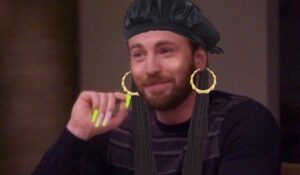Living Vicariously Through the Black Image

Posted by Lauren Senwo
October 26, 2020
As many in my generation do, I find TikTok to be very addicting.
I usually find myself on there for hours at a time, ignoring most of my responsibilities, for the pleasure of watching a compilation of clips that only last a few seconds. And if we’re being honest, I enjoy these moments of light thinking and “immaculate vibes”; being able to disconnect myself from reality for a few hours a day has become an essential part of my de-stressing routine. And, honestly, I’d say that’s the case for many others that spend an ample amount of time using the app.
Either that… or it’s all just an excuse for our lack of productivity and procrastination.
Regardless of the reason, with the amount of time I spend scrolling through Tiktok, it’s almost impossible not to notice the heavy use of Black culture, especially Black American culture, that many creators rely on in order to become a trending face. This by no means is surprising, but nonetheless annoying, considering that most of these trending faces are white.
One could spend hours scrolling down the for you page and only come across a handful of Black creators, but they certainly wouldn’t fail to hear the Black music being played in the background, nor the Black lingo being used in their captions, or the Black dance moves their exhibiting. Earlier this year, The Wired spoke deeply on this form of culture vulture in a piece by Jason Parham titled, TikTok and the Evolution of Digital Blackface, where they state that “The common denominator of many of its viral moments is an unspoken partiality to Black cultural expression. It works like an accelerant… As Blackmon puts it, ‘Be clear: Without Black culture, TikTok wouldn’t even be a thing’.”
So why is Black culture so popular when Black creators aren’t?
Well, the world has always been aware of just how influential Black people are. We tend to set the trends, although, many times, we don’t get any of the credit. Blackness is regularly at the center and forefront of media and culture, so whether it be for positive or negative reasons, it is no surprise that many find their “inspiration” through us. Blackness determines what is popular, Blackness determines what’s in style, Blackness starts the revolutions, and because of this: Blackness is hyper fixated on by those outside of it. Since this is the case, I’ve always believed it to be essential to recognize how audiences are consuming the Black image and how this age-old phenomenon has entitled many nonBlack people to live vicariously through the Black image, free of consequence and scrutiny.
Throughout various media platforms, TikTok included, we are shown the intimate desire among nonBlack people/Brands to align with Blackness. It’s in their fashion, their use of AAVE (African American Vernacular English), the music they play, even the memes they use. For many, the concept of Blackness has no boundaries as to who can embrace it; anyone can be a nigga. Because people refuse to view Blackness outside of entertainment; it enables them to believe that they can partake in Blackness and take up spaces without any prior knowledge or understanding of the art/culture they are claiming. Their perception of Blackness is unvaried and discounts the history, the heritage, the beauty, and the struggle that comes with it. They, in turn, are allowed to step in and out of Blackness whenever they please; the moment being Black is no longer fun and becomes an endangerment to their lives, they quickly step back into their reality and the safety net that comes with aligning aside whiteness.
Some may not see the harm in this and claim that exchange in cultures should be embraced, however, this is not an exchange. This is an appropriation that dismisses and excludes the original creators. How many Black creators are receiving the same recognition as Charli D’Amelio? How many are getting movie deals and reality tv shows like Addison Rae? You can’t even begin to name them because there aren’t any. What message are we sending to the world when the only ones we grant visibility to are white, cis-gendered, and able-bodied? How do we ensure we are valuing and crediting the work of Black people? It’s no longer just to partake in Black culture and Black aesthetics without addressing the anti-Blackness that refuses to uplift Black people in the same manner. Dismantling white supremacy also means dismantling our own internal bias that views Blackness as a commodity rather than a multifaceted identity.
I encourage you all to take the time to follow and support some of my favorite Black TikTok creators because they deserve the recognition:
@bjfromtheburbs
@fatraco0n
@esmeraldabrat4
@grace_africa
@the_real_muchoflow_
@antonibumba
@itsdamiong
@kamcorder
@theesudani
@thekumasi
@naezrah
@antiblackfishclub
Leave a Reply
You must be logged in to post a comment.



